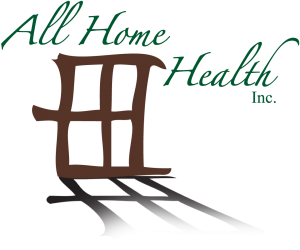Direct care is provided by a home health aide to clients. PCAs are ideal for seniors who are not ready for skilled nursing, but want more than the services of a companion. The majority of home health clients are elderly or have chronic illnesses or disabilities.
A home health aide can help improve a senior’s quality of life in six ways.
1. Assists With ADLs
Living independently involves taking care of ADLs, or activities of daily living, such as bathing, dressing, grooming, and using the bathroom. These tasks can be accomplished by home health aides, preserving the senior’s autonomy in their own home or community.
In some cases, this might mean using lifts or slings to assist the senior in transporting them.
2. Provides Light Housekeeping
An integral part of aging in place, or aging at home, is overseeing and taking care of the home, which can include housekeeping and laundry. In addition to taking out trash, cleaning the bathroom, and doing a load of laundry, home health aides can assist with the everyday tasks that make a difference in the life of the resident. It is healthier to live in a tidy and clean environment.
3. Helps Prepare Meals
In some cases, home health aides also assist with meal preparation, which can assist the client in overcoming any obstacles to eating well, such as rides to the store or standing and cooking.
Assisted living home health aides may also prepare some meals in advance so the senior will have healthy options readily available for mealtimes.
Home health aides may also offer companionship to run errands, such as grocery shopping.
4. Gives Medication Reminders
Although home health aides have limited responsibilities in relation to patient medication, they can be a great source of encouragement and reminders for patients.
Also, the home health aide is in a perfect position to provide crucial information to the senior’s healthcare providers about medication management, needs, and issues, acting as a mediator in most cases. Monitoring med changes or side effects can be performed by the home health aide.
5. Assists in Infection Control
If left untreated, infections can cripple or even kill an otherwise healthy person; they debilitate and even kill those with disabilities.
As part of their training, home health aides learned how to manage infections and prevent them. It is likely that they are familiar with MRSA, C-Diff, and other diseases that elderly, housebound, or hospitalized patients are prone to. They can not only keep the patient healthy and free of infections, but also keep the environment free of pathogens that could cause problems.
6. Provides Social Interaction
Home health providers play a crucial role in providing seniors with social interaction and engagement. Aides often work with seniors for years or months at a time, so they build therapeutic relationships with them. Those without access to transportation or who don’t see others often can also benefit from this service.
Often, a medical social worker collaborates with home health aides and the entire treatment team. Some medical social workers are able to help their clients improve their quality of life by enlisting the support of a home health aide.
When a senior is supported by a system of home health aides, there are numerous benefits to be gained. Learn more about aging in place by talking with the experts at All Home Health.
